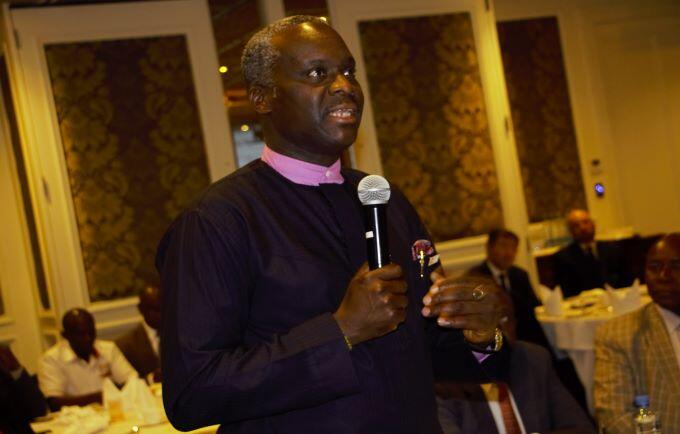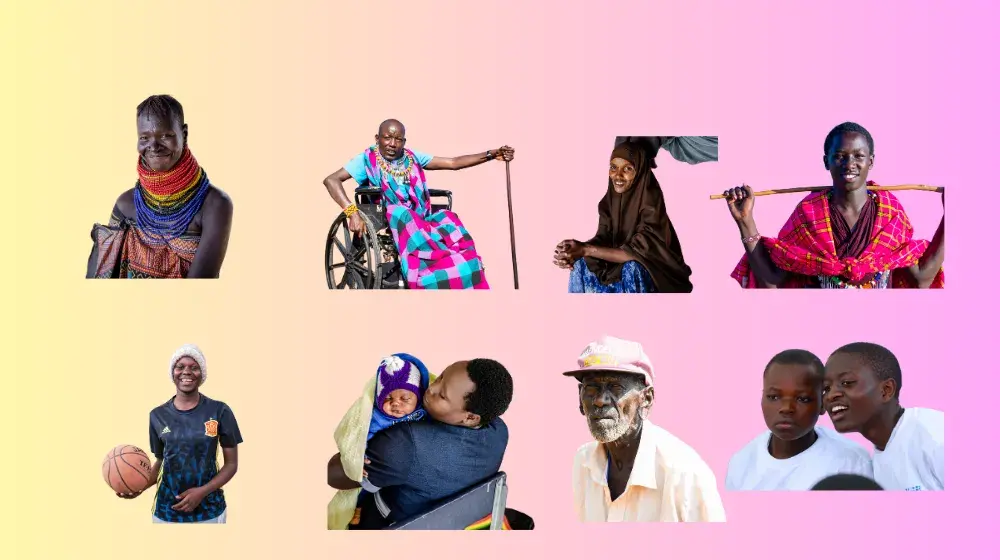It gives me great pleasure to join the Government of Kenya and all development partners in this consultative meeting on the 2019 Kenya Population and Housing Census.
Your presence here today is a demonstration of the strong partnership and resolve in advancing this important national agenda. The meeting is also very timely because we are at a critical phase of finalizing the census preparations, ahead of the enumeration exercise.
Population and housing census is one of the primary sources of data needed for formulating, implementing and monitoring policies and programmes aimed at inclusive socioeconomic development and environmental sustainability. It is an important source for supplying disaggregated data needed for the measurement of progress of the 2030 Agenda for Sustainable Development at global level and Vision 2030 in the Kenya.
It is for this reason therefore that the ECOSOC resolution E/RES/2015/10 was passed that established the 2020 World Population and Housing Census Programme that urges Member States to conduct at least one population and housing census during the period from 2015 to 2024. The member states are to take into account international and regional recommendations relating to population and housing censuses and give particular attention to advance planning, cost efficiency, coverage and the timely dissemination of, and easy access to, census results for national stakeholders and other stakeholders in order to inform decisions and facilitate the effective implementation of development plans and programmes.
Ladies and Gentlemen,
The United Nations commends the Government of Kenya for its commitment in conducting the population and housing census every 10 years since 1969 as recommended in United Nations Principles and Recommendations for conducting population and housing censuses. Additionally, conducting the 2019 KPHC ensures Kenya has implemented ECOSOC resolution and puts Kenya on track in achieving SDG indicator 17.19.2 that requires member states to conduct at least one population and housing census in every 10 years.
Demographic intelligence from population and housing census offers insights into how demographic changes, such as status and trends of population growth, health, ageing, distribution, mobility, family life and household structures, shape social, economic and environmental development. It is through this that the population groups that are furthest behind are identified served. It is therefore important that, in pursuit of achieving the Kenya’s Vision 2030 and the BIG four Agenda, everyone, everywhere, must be counted, and accounted for.
Ladies and Gentlemen
Globally, the United Nations through United Nations Population Fund, has played a key role in providing leadership in the conduct of censuses in accordance with the United Nations Principles and Recommendations for conducting censuses. Through experiences and best practices from various countries, UNFPA in collaboration with other partners has been able to successfully provide technical assistance in conducting censuses all over the world.
The United Nations has walked with the government and especially KNBS since the conceptualization of the 2019 KPHC and I am pleased to see the project entering the second phase of enumeration.
As in previous censuses in Kenya, United Nations is playing a key role in fostering an environment conducive to the conduct of 2019 KPHC technical and financial support in development of census project proposal, capacity building of census team through international trainings and study tours to other countries. In addition, the UN facilitated procurement of tablets and computers for mapping, resource mobilization, development of advocacy and publicity strategy, mapping, development of census questionnaires and manuals and conduct of pilot census.
Currently development of resources mobilization strategy and census credibility strategy are ongoing, and placement of technical specialists to enhance KNBS capacity to undertake census is work in progress. Furthermore plans are also underway to establish an independent monitoring mechanism and avail a team of international observers to enhance census credibility.
In conclusion, I would like to reiterate the UN’s commitment to work with the Government of Kenya, development partners, private sector agencies and the public to support the government successfully in implementing the remaining phases of the 2019 KPHC.
Thank you
It gives me great pleasure to join the Government of Kenya and all development partners in this consultative meeting on the 2019 Kenya Population and Housing Census.
Your presence here today is a demonstration of the strong partnership and resolve in advancing this important national agenda. The meeting is also very timely because we are at a critical phase of finalizing the census preparations, ahead of the enumeration exercise.
Population and housing census is one of the primary sources of data needed for formulating, implementing and monitoring policies and programmes aimed at inclusive socioeconomic development and environmental sustainability. It is an important source for supplying disaggregated data needed for the measurement of progress of the 2030 Agenda for Sustainable Development at global level and Vision 2030 in the Kenya.
It is for this reason therefore that the ECOSOC resolution E/RES/2015/10 was passed that established the 2020 World Population and Housing Census Programme that urges Member States to conduct at least one population and housing census during the period from 2015 to 2024. The member states are to take into account international and regional recommendations relating to population and housing censuses and give particular attention to advance planning, cost efficiency, coverage and the timely dissemination of, and easy access to, census results for national stakeholders and other stakeholders in order to inform decisions and facilitate the effective implementation of development plans and programmes.
Ladies and Gentlemen,
The United Nations commends the Government of Kenya for its commitment in conducting the population and housing census every 10 years since 1969 as recommended in United Nations Principles and Recommendations for conducting population and housing censuses. Additionally, conducting the 2019 KPHC ensures Kenya has implemented ECOSOC resolution and puts Kenya on track in achieving SDG indicator 17.19.2 that requires member states to conduct at least one population and housing census in every 10 years.
Demographic intelligence from population and housing census offers insights into how demographic changes, such as status and trends of population growth, health, ageing, distribution, mobility, family life and household structures, shape social, economic and environmental development. It is through this that the population groups that are furthest behind are identified served. It is therefore important that, in pursuit of achieving the Kenya’s Vision 2030 and the BIG four Agenda, everyone, everywhere, must be counted, and accounted for.
Ladies and Gentlemen
Globally, the United Nations through United Nations Population Fund, has played a key role in providing leadership in the conduct of censuses in accordance with the United Nations Principles and Recommendations for conducting censuses. Through experiences and best practices from various countries, UNFPA in collaboration with other partners has been able to successfully provide technical assistance in conducting censuses all over the world.
The United Nations has walked with the government and especially KNBS since the conceptualization of the 2019 KPHC and I am pleased to see the project entering the second phase of enumeration.
As in previous censuses in Kenya, United Nations is playing a key role in fostering an environment conducive to the conduct of 2019 KPHC technical and financial support in development of census project proposal, capacity building of census team through international trainings and study tours to other countries. In addition, the UN facilitated procurement of tablets and computers for mapping, resource mobilization, development of advocacy and publicity strategy, mapping, development of census questionnaires and manuals and conduct of pilot census.
Currently development of resources mobilization strategy and census credibility strategy are ongoing, and placement of technical specialists to enhance KNBS capacity to undertake census is work in progress. Furthermore plans are also underway to establish an independent monitoring mechanism and avail a team of international observers to enhance census credibility.
In conclusion, I would like to reiterate the UN’s commitment to work with the Government of Kenya, development partners, private sector agencies and the public to support the government successfully in implementing the remaining phases of the 2019 KPHC.
Thank you




